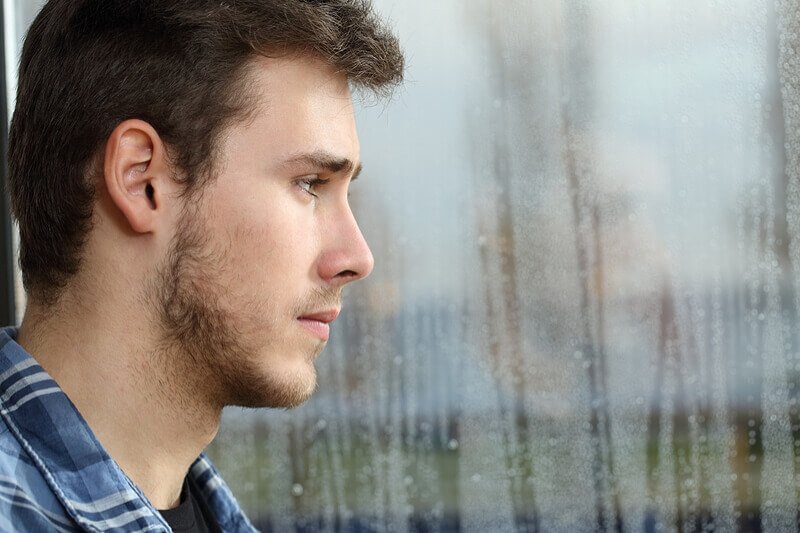
Covid 19 and Its Effect on Teenage Mental Health
Written by Craig Rogers, Posted on , in Section The Latest
As of August 4, 2020, COVID-19 has infected more than 4.9 million Americans. Of these millions of COVID cases, over 676,000 have resulted in death. The overwhelming majority of victims were either elderly or suffered from a pre-existing medical issue prior to being infected.
But while America’s elderly and sick make up the overwhelming majority of covid-19-related deaths, the nation’s youth are still very much at risk, particularly when it comes to their psychological well-being.
America’s Youth are More Depressed and Anxious Than Ever Before
With millions of Americans left vulnerable and at-risk of becoming affected or dying, the US’s now several month-old social distancing measures are unquestionably necessary for the sake of public safety.
However, that’s not to say that these preventative actions and societal restrictions come without a high cost. Specifically, the threat these measures pose to the mental health of America’s youth.
According to researchers in 2017, depression and anxiety disorders affect millions of teenagers each year - roughly 12% and 30% of all teens, respectively.
Unfortunately, thanks to the coronavirus outbreak and its subsequent socially restrictive measures, those numbers may be much higher, today.
A survey conducted by Hariss Poll via the National 4-H Council last June, seems to support this notion.
Pollers found that 70% of the survey’s 1,500 teenage participants stated “they struggle with mental health-related issues” due to social distancing and other social restrictions (ie. not being able to go to events, most local hang-outs, school and/or participate in extracurricular activities, such as sports, hanging out with friends etc.).
The President and CEO of 4-H, Jennifer Sirangelo, spoke with HuffPost about the devastating effect COVID-19 has had on the mental health of our nation’s youth.
Sirangelo said, “It is clear to us based on the survey findings that COVID-19 has had a measurable adverse impact on teens’ mental health,”
She added, “For example, 61% of teens said that the COVID-19 pandemic has increased their feelings of loneliness.”
A particularly noteworthy discovery from the survey found that teens reported spending at least nine hours a day on their screens - a three hour increase from last year.
While the correlation between the amount of time teenagers spend on screens and their demographic’s increasing rates of depression and anxiety can’t necessarily be validated, experts suggest that spending over nine hours a day on screen time is likely a factor. Albeit, an unproven one.
Not All Teens Are Affected The Same
According to Ellen Rome, MD, MPH, a pediatrician and head of the Center for Adolescent Medicine at the Cleveland Clinic, introverted and anxious teens may actually experience less anxiety during the pandemic. Rome states that today’s unprecedented events may in fact, actually have a calming effect on overly anxious and introverted adolescents.
In an article published on Cleveland Clinic’s website, Dr. Rome states, “The world is experiencing some of the baseline anxiety that they [clinically anxious teens] live with day-to-day, so for some kids, that’s actually reassuring; the world gets them more.”
Unfortunately, however, Dr. Rome points out that the opposite is most likely to be true for extroverted teenage boys and girls.
“The extroverts who tend to recharge with people are devastated by quarantine, and many of them will do everything they can — including participating in risk-taking behaviors or not socially distancing — to get around it, which can potentially put their families and loved ones at risk,” she says.
What Can Parents Do to Ensure Their Teen’s Mental Health Isn’t Negatively Affected During the Pandemic?
In an interview with HuffPost, Steven Meyers, a professor of psychology at Roosevelt University in Chicago, advises parents on how they can support and help their child navigate life during the pandemic.
In the article, Meyers states that parents should be “checking in directly with their child” on a regular basis. And, rather than shy away from tough conversations, he says parents should routinely ask their child how they are doing. If they believe something is wrong with their child, the professor implores parents to empathetically inquire about what it is their teen is struggling with or personally going through.
For parents who might have difficulty getting their child to open up, professor Meyers advises, “perhaps, open up about your own emotions and struggles to get the conversation going.”
What’s more, according to the 4-H council’s survey, teenagers are likely interested in engaging in this type of intimate conversation.
80% of the survey’s participants said that mental health issues are a major concern that their generation currently faces. However, the same number of participants also reported that they would feel uncomfortable asking for help regarding mental health-related issues.
Dr. Sirangelo and Professor Steven Meyers advice to parents is simple: Become involved in your child’s life.
“It’s impossible to anticipate every scenario they may encounter but we can equip them with the skills to navigate this complicated world,” she added. “Most importantly, teens need to know that it is OK to ask for help,”
- Dr. Sirangelo
By simply engaging in their child’s day-to-day life (which includes paying attention to their teenager’s moods, overall state of well-being, being sincerely empathetic to their emotions and struggles etc.) parents become more able to actively support and nourish their son or daughter’s mental health - even during a social distance .
